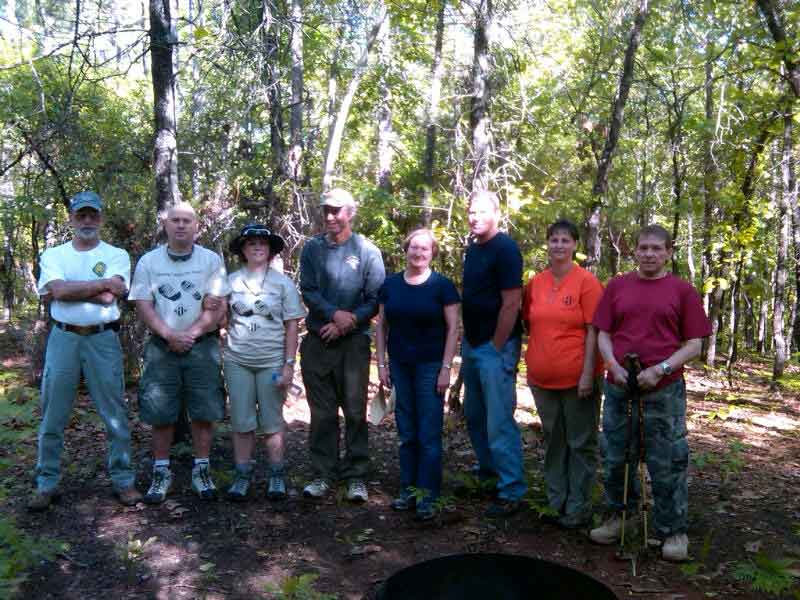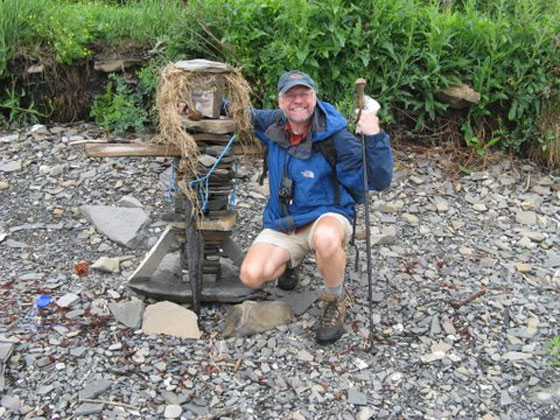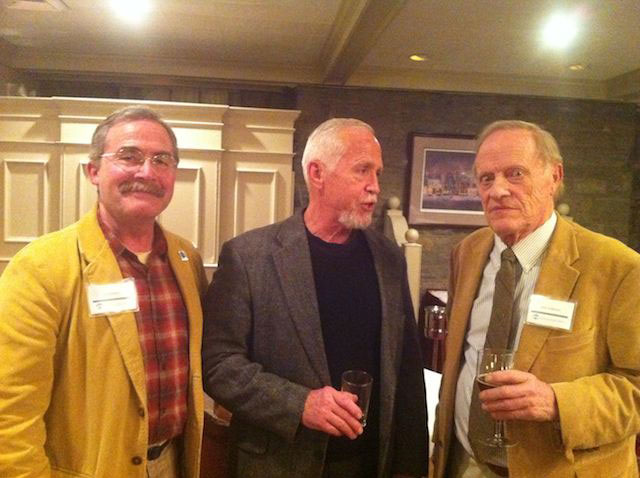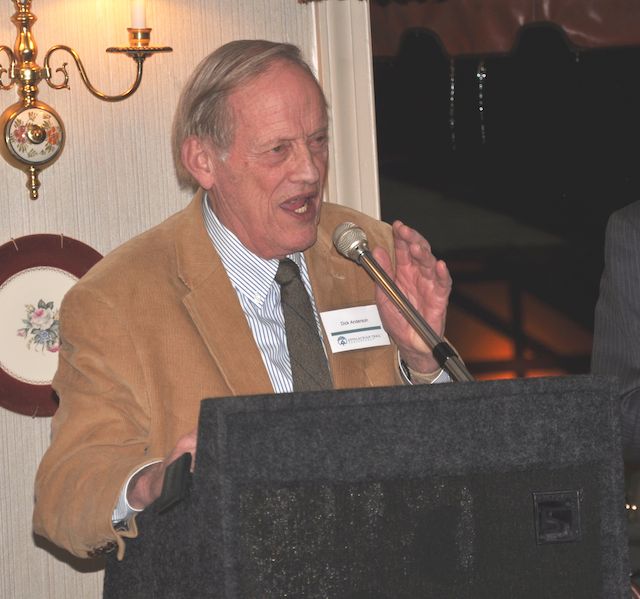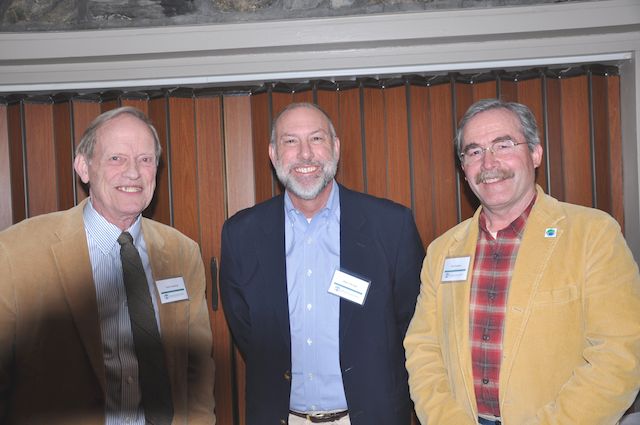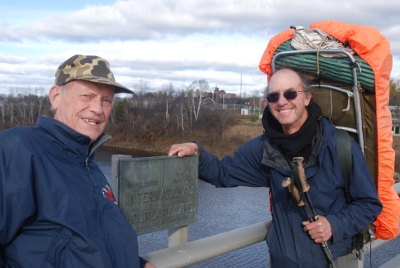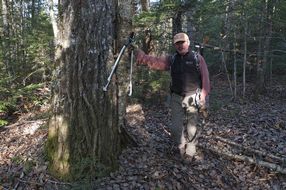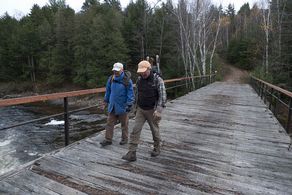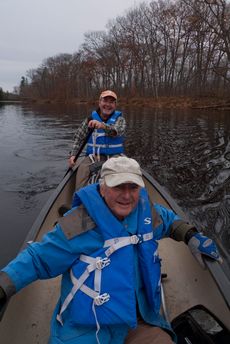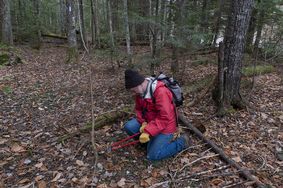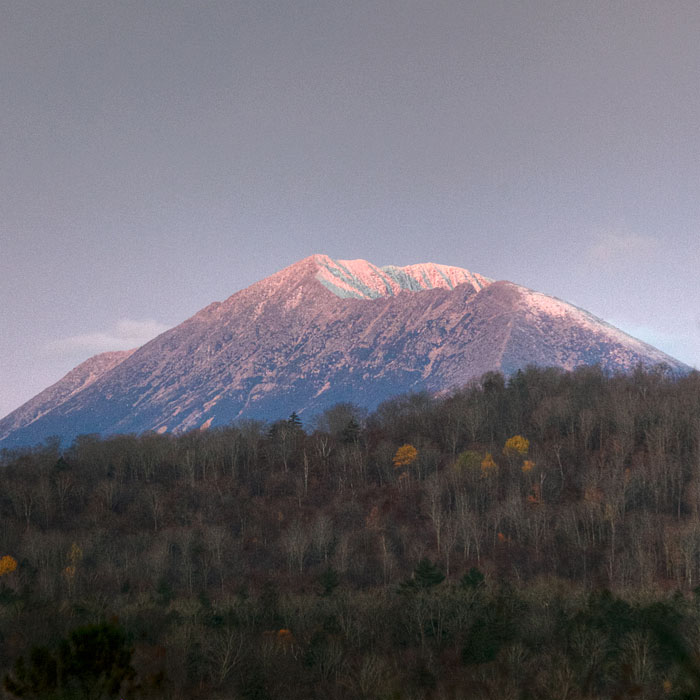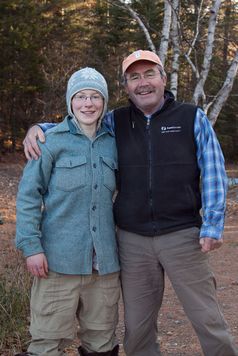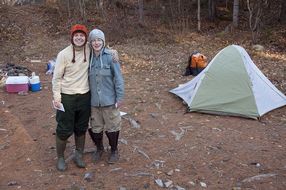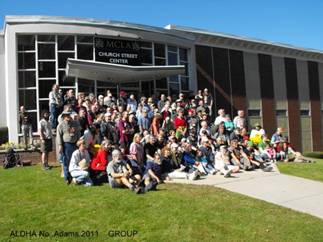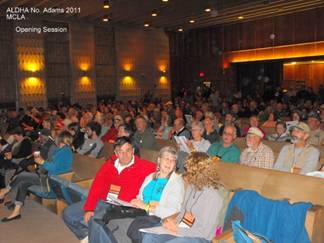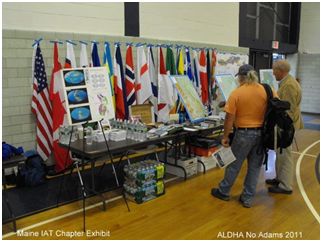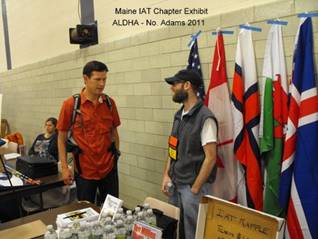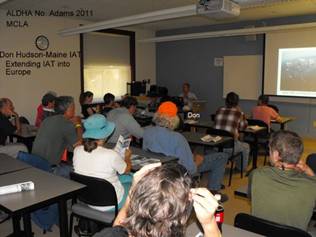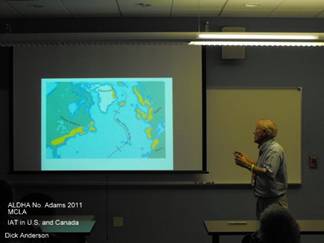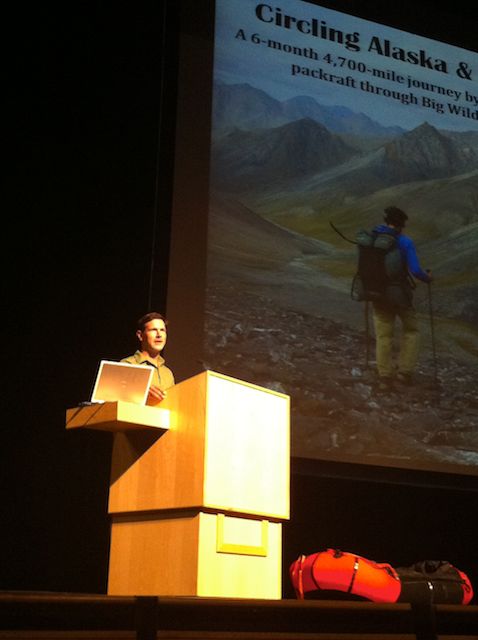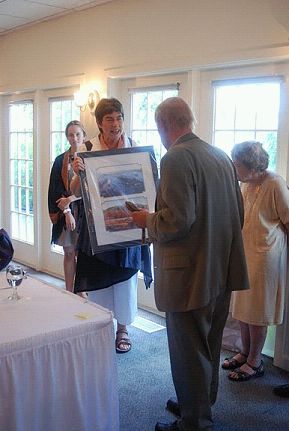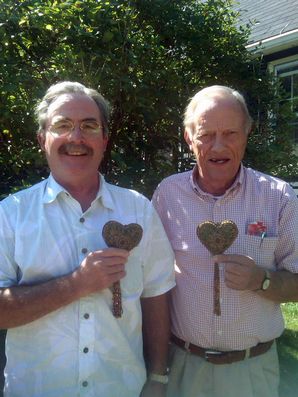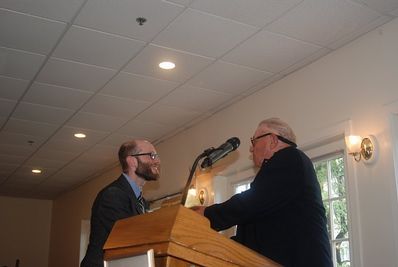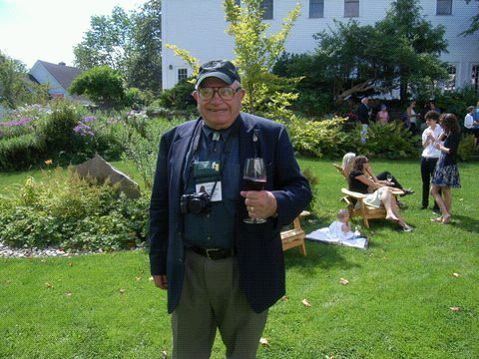The Maine Chapter Board of Directors met at the Bear Brew Pub in Orono on Thursday, September 8th. Among the usual review of finances and progress of thru-hikers, the Board focused on plans for the Annual General Meeting of the Chapters to be held at the Gîte du Mont Albert on the Gaspé (September 16-19) and the Annual Meeting of the Appalachian Long Distance Hiker’s Association (ALDHA) to be held on Columbus Day weekend in North Adams, Massachusetts. Walter Anderson also presented initial plans for the Maine Chapter Annual Meeting (May 17-19, 2012) to be held at Shin Pond Village.
In addition to the usual review of activities, the Board also discussed up-coming trail work on the alternate high water route from the Wassataquoik lean-to east of Katahdin Lake to the bridge over Wassataquoik Stream just upstream from the confluence with the East Branch of the Penobscot (October 12-15). In the event that the stream is too high to ford, this route can be used by hikers to access the trail north to Deasey and Lunksoos Mountains.
The Board also discussed a proposal by Ralph Brill of Brill Galleries in North Adams, Massachusetts to produce a book of photographs about the International Appalachian Trail — the Pangaea Project. The book will be assembled by a team of photographers, and it will tell the story of the trail from its beginning in Maine, New Brunswick and Quebec to its transatlantic development in Greenland, Iceland, Europe and North Africa. The Board authorized Dick Anderson to sign a letter of support and cooperation for Ralph to help him secure financial backing for the project.
Of special note, the first order of business at the outset of the meeting was the presentation to out-going Treasurer, Bob LeMieux of special recognition for his work managing the finances of the Chapter so effectively over the past four years. When Bob tendered his resignation in August, Dick Anderson decided that it was time for him to step aside as President of the Chapter, a post he has held since April 1994. Dick offered to serve as the new Treasurer, and he proposed that Don Hudson be nominated as the Chapter’s new president. Finally, Seth Levy was nominated to fill Don’s role as Secretary of the Chapter. The Board took up the nominations following the recognition of Bob LeMieux, and the new slate of officers was elected unanimously.
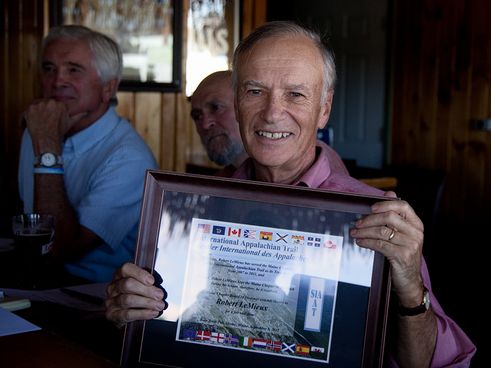
Out-Going Treasurer – Bob LeMieux (photo by Bill Duffy)
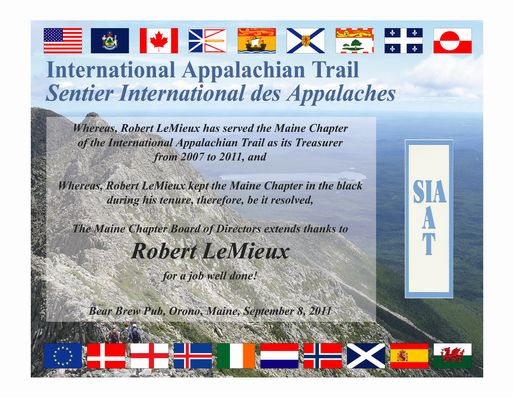
Copy of Bob’s Award
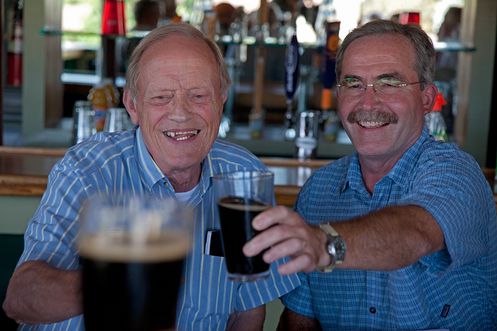
Out-Going President, Dick Anderson and Incoming President, Don Hudson (photo by Bill Duffy)
Following the vote of the Board of Directors, Dick Anderson shared his thoughts about the status of the Maine Chapter and the Trail overall.
I am retiring as President of the Maine Chapter of the International Appalachian Trail after 15 years. I feel it is time for new, younger leadership to take on the challenges of being involved in continued international development and the solidification of the tremendous expansion of the trail that has occurred in the last 10 years. The Maine Chapter IAT has also made great improvements in the Maine section of the trail and the organizational structure exists to continue excellent maintenance and explore new, improved trail locations.
I really appreciate all the great support I have received from the many volunteers that have developed the Maine section of the IAT and the many Board members that have been so involved in the smooth functioning of the Maine Chapter over the last 15 years. In addition, I thank all the members who have given us moral and financial support. This project has truly been a wonderful example of what a committed group of people, working together, can accomplish and I have been really happy to have played a part in the
development of the IAT.
I wish my successor, Don Hudson, great success and remain committed to continued involvement in all aspects of the development of the International Appalachian Trail.
Don Hudson shared his thoughts as well as he accepted his new role.
When Dick Anderson asked me to help him establish the International Appalachian Trail in October, 1993, I jumped at the chance. Dick Davies and Chloe Chunn joined us, and on Earth Day (April 22) 1994, Joe Brennan announced the goal to link the highest mountains in Maine, New Brunswick and Quebec with a long distance trail. Many others in Maine and across the region soon joined the effort, and on Earth Day 2001 we celebrated the completion of the trail at Cap Gaspé in Parc Forillon, Quebec. None of us could have imagined that the trail would eventually make its way across the Atlantic, from Greenland and Iceland to Northern Europe and North Africa.
Dick Anderson has done a remarkable job for nearly 18 years to keep the Maine Chapter of the IAT moving forward, as well as to establish a strong working network of chapters in Canada and Europe. Following his lead, all of us in North America have negotiated trail easements, built lean-tos and chalets, secured access through new territory, and established strong working relationships with the Appalachian Trail Conservancy and the long distance hiking community. I look forward very much to working on these and many other projects in the coming years, and I am especially pleased that Dick will continue to work with us as the Treasurer of the Maine Chapter.
The jump across the Atlantic presents wonderful opportunities for linking ancient trails and byways with the vibrant hiking tradition in the United States and Canada. Our routes through the Appalachian Mountains are young by comparison with paths through the West Highland glens of Scotland, the Roman roads of the Villuercas in Spain, or the paths that link Berger villages in the High Atlas of Morocco. Nevertheless, we share common goals for bringing people together in appreciation of grand landscapes and open spaces.
On a cold winter evening in January 1994, Dick proposed a simple vision to our small planning group — Nature knows no boundaries! We embraced that vision in a heart beat, and it has served us well for nearly two decades. The International Appalachian Trail will find new routes, new friends, and new leaders in the coming years, and I look forward to carrying Dick’s vision into that bright future.

